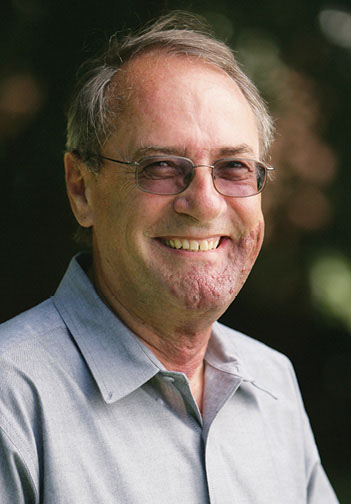Professor Janos Sztipanovits’ “Computing the Biome” convergent research team has been awarded a $5 million cooperative agreement to advance to phase 2 of the National Science Foundation’s 2020 Convergence Accelerator program. His team is developing technology to detect biological threats and predict disease outbreaks in major U.S. cities.

“The Computing the Biome project, which utilizes Microsoft’s Premonition platform, is an extremely ambitious pioneering effort aimed at the creation of a global, real-time system for detecting and predicting biological threats as they evolve in the environment,” said Sztipanovits, who is director of the Institute for Software Integrated Systems, E. Bronson Ingram Distinguished Professor of Engineering and professor of computer science. “We are excited to contribute our model-integrated computing technology to this project with the goal of making global impact.”
NSF is investing $50 million to advance 10 research teams to phase 2, where they will address national-scale societal challenges. Computing the Biome was one of 29 teams to earn a Convergence Accelerator phase 1 award in September 2020.
“I am incredibly excited about the integration of academia, public health organizations, startups and established technology providers to tackle important societal challenges,” said Ethan Jackson, PhD’07 and leader of Premonition in his role as a senior director at Microsoft. “Delivering solutions requires much more than the fusion of data sets. It requires the fusion of people, ideas and organizations—and this team is going to deliver.”
In the first year, the Computing the Biome effort will focus on monitoring and predicting mosquito-borne diseases, which affect nearly 700 million people globally each year.
Scientists need rich and timely data about the distribution and evolution of species in the environment to predict human disease outbreaks. The first goal of the Computing the Biome team is to build new data streams that combine information such as hyper-local weather, autonomously identified disease transmitting insects and genetically identified viruses and microbes. The second goal is to develop AI systems that use those new data streams to detect and predict existing and emerging biothreats.
The project will first be deployed in Harris County, Texas, which includes the city of Houston. Vanderbilt will contribute to the development of open-source data platforms, application design studios, AI/ML algorithms and project management.
Over the course of the next two years the team—consisting of engineers, computer scientists, biologists, epidemiologists, public health and policy experts from Microsoft’s Premonition, Tomorrow.io, Harris County Public Health, John Hopkins University, University of Pittsburgh Medical School, Vanderbilt University and University of Washington—will also develop a framework for economic sustainability and global scalability to ensure continued impact beyond NSF support.

“A convergence approach, paired with innovation concepts like human-centered design and use-inspired research, is important for solving large-scale national challenges,” said Douglas Maughan, head of the NSF Convergence Accelerator program. “The NSF Convergence Accelerator is a young program, but we have already seen teams like Computing the Biome apply our program fundamentals to move their solution forward for societal impact. We are excited to welcome the Computing the Biome team into phase 2 and to guide the team and their solution to have a positive impact on our environment and the American public.”
About NSF Convergence Accelerator
Research is often driven by a compelling societal or scientific challenge; however, it may take the researcher community years to develop a solution. To deliver tangible solutions that have a nationwide societal impact at a faster pace, the NSF launched the Convergence Accelerator program in 2019. Designed to leverage a convergence approach to transition basic research and discovery into practice, the accelerator uses innovation processes like human-centered design, user discovery, team science and integration of multidisciplinary research and partnerships. Accelerator is making timely investments to solve high-risk societal challenges through use-inspired convergence research.
By Marissa Shapiro
Contact: Brenda Ellis, 615 343-6314
brenda.ellis@vanderbilt.edu